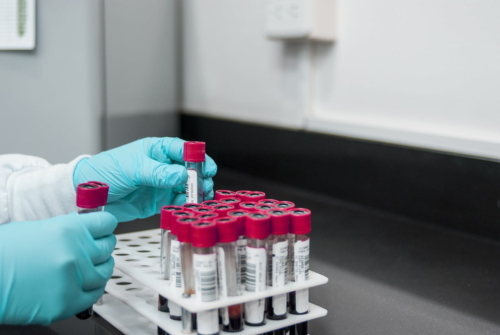
El TSJC ratifica la absolución de una mujer acusada de transmitir el VIH a su expareja en Tenerife
The Criminal Division of the High Court of Justice of the Canary Islands (TSJC) has rejected the appeal lodged by a man against the judgement of the Provincial Court of Santa Cruz de Tenerife which acquitted his ex-partner, accused of transmitting HIV to him by having unprotected sex and concealing his HIV-positive status. The sentence, made public this Friday, stresses that there is no conclusive evidence that the woman had infected her ex-partner with the virus and relies on the three arguments put forward by the Provincial Court to justify the acquittal. “They are neither illogical nor irrational and do not appear to be undermined by scientific evidence or maxims of experience. No such activity has been carried out by the accusing parties”, states the sentence. Thus, it specifically highlights that the victim had a relationship with another person and “nothing rules out” that he could have infected him, that the fact of having a negative analysis in May 2018 – before starting the relationship – “does not rule out that the infection had not occurred prior to that date given that the virus can take several weeks to develop” and that a phylogenetic analysis that leads to affirm “without any hint of doubt” that the man was infected by his partner is lacking. The man was detected with the virus in 2019 after having a relationship with the woman, who never told him that she was a carrier of the virus and justified the medicines she had at home to treat a kidney disease, although in the oral trial she said that she knew about her situation since 2014 and told her boyfriend. The prosecution, which joined the appeal of the private prosecution and requested the revocation of the sentence, requested a sentence of nine years in prison for a crime of injury and compensation of 30,000 euros. The sentence, which is not final, can be appealed in cassation before the Second Chamber of the Supreme Court.
El TSJC ratifica la absolución de una mujer acusada de transmitir el VIH a su expareja en Tenerife
La Sala de lo Penal del Tribunal Superior de Justicia de Canarias (TSJC) ha desestimado el recurso de apelación interpuesto por un hombre contra la sentencia de la Audiencia Provincial de Santa Cruz de Tenerife que absolvía a su expareja, acusada de transmitirle el VIH al tener relaciones sexuales sin protección y ocultarle su condición de seropositiva. La sentencia, hecha pública este viernes, incide en que no hay pruebas concluyentes de que la mujer haya contagiado a su expareja con el virus y se ampara en los tres argumentos esgrimidos por la Audiencia Provincial para justificar la absolución. “No son ilógicos ni irracionales y no aparecen desvirtuados por evidencias científicas ni máximas de experiencia. Ninguna actividad ha sido desplegada en tal sentido por las partes acusadoras”, recoge la sentencia. Así, destaca concretamente que la víctima mantuvo una relación con otra persona y “nada descarta” que le hubiera podido contagiar, que el hecho de contar con un análisis negativo en mayo de 2018 –antes de iniciar la relación– “no descarta que el contagio no hubiese acaecido con anterioridad a esa fecha habida cuenta de que el virus puede tardar varias semanas en desarrollarse” y que falta un análisis filogenético que lleve a afirmar “sin ningún atisbo de dudas” que el hombre fue contagiado por su pareja. Al hombre le fue detectado el virus en 2019 después de mantener la relación con la mujer, que nunca le comunicó que era portadora del virus y justificaba los medicamentos que tenía en su casa para tratar una enfermedad renal, si bien en el juicio oral dijo que conocía de su situación desde 2014 y se la comunicó a su novio. La Fiscalía, que se adhirió al recurso de la acusación particular y pidió la revocación de la sentencia, solicitaba una pena de nueve años de cárcel por un delito de lesiones y una indemnización de 30.000 euros. Contra la sentencia, que no es firme, cabe interponer recurso de casación ante la Sala Segunda del Tribunal Supremo.
Woman accused of transmitting HIV to her ex-partner in Tenerife is acquitted
The Provincial Court believes that there is no conclusive evidence, nor the security and certainty required to dismantle the presumption of innocence and conclude that she had infected the man as it is possible that he contracted the disease through other relationships.
The Provincial Court of Santa Cruz de Tenerife has acquitted a woman whose ex-partner blamed her for having transmitted the HIV virus to him after a relationship lasting a year and a half during which they had unprotected sex.
The Court believes that there is no conclusive evidence, nor the certainty and certainty required to dismantle the presumption of innocence and conclude that the woman had infected the man as it is possible that he contracted the disease through other relationships.
The Court maintains its doubts about the guilt of the defendant given that the type of virus of both is different since one is HIV-1 and the other is HIV-2, with a different viral load.
The magistrates point out that to prove that they were the same it would have been necessary to provide a phylogenetic analysis of both to see their genetic composition.
According to the ruling, to which EFE has had access and which can be appealed before the High Court of Justice of the Canary Islands (TSJC), it cannot be concluded “unequivocally that it was the accused who infected him with the virus, as there is no objective data that undeniably or indisputably proves this circumstance”.
Even more so, adds the ruling, when “it cannot go unnoticed that before being with her, the complainant had had a relationship with another person, and nothing rules out that the contagion could have come from the same or any other form of transmission other than the one reported”.
Although there is a clinical analysis prior to the start of the relationship in which HIV was not detected, “this does not rule out the possibility that the infection had not occurred previously”, states the sentence.
The Court draws attention to the contradictions between the two parties in conflict on aspects such as whether he was informed of the disease, the type and frequency of sexual relations.
The man was diagnosed with the condition in 2019 after having this relationship with the woman, who, he said, never told her that he had the disease and justified the medicines that were in his house because he suffered from a kidney ailment.
She, however, stated during the trial that from the beginning she confessed to him that she had been a carrier of the virus since 2014, to which the complainant replied that he did not care, that he knew what the medication was for and that at that time he was having parallel relationships with several other women.
The prosecutor asked for nine years for a crime of injury and the payment of 300,000 euros, half of which would serve to compensate the health expenses, although the man acknowledges that the Social Security pays them, and the rest for the moral damages and physical consequences suffered.
The Public Prosecutor’s Office concludes that the woman knew that she suffered from the condition when the relationship began and that she never informed the victim. Arguments also maintained by the private prosecution, who stressed the contradictions in which the defendant would have incurred while the defence asked for acquittal, considering that insufficient evidence was presented to be able to dismantle the presumption of innocence.
Absuelta la mujer acusada de transmitirle el VIH a su expareja en Tenerife
La Audiencia Provincial cree que no hay pruebas concluyentes, ni la seguridad y certeza exigida para desmontar la presunción de inocencia y concluir con que hubiese infectado al hombre al ser posible que contrajera la enfermedad a través de otras relaciones
La Audiencia Provincial de Santa Cruz de Tenerife ha absuelto a una mujer a la que su expareja culpaba de haberle transmitido el virus del VIH después de tener una relación de año y medio durante la cual mantuvieron relaciones sexuales sin protección.
La Sala cree que no hay pruebas concluyentes, ni la seguridad y certeza exigida para desmontar la presunción de inocencia y concluir con que la mujer hubiese infectado al hombre al ser posible que contrajera la enfermedad a través de otras relaciones.
La Audiencia mantiene sus dudas sobre la culpabilidad de la denunciada dado que el tipo de virus de ambos es diferente ya que uno es del VHI-1 y otro del VHI-2, con distinta carga viral.
Los magistrados apuntan que para demostrar que se trataba del mismo hubiese sido necesario aportar un análisis filogenético de ambos para ver su composición genética.
Según la sentencia a la que ha tenido acceso EFE y que es recurrible ante el Tribunal Superior de Justicia de Canarias (TSJC), no se puede concluir de forma “inequívoca, que fue la acusada quien le contagió el citado virus, por cuanto no existe dato objetivo alguno que evidencie de manera innegable o indiscutible esa circunstancia”.
Más aún, añade el fallo, cuando tampoco “nos puede pasar desapercibido que el denunciante antes de estar con ella había mantenido una relación con otra persona, y nada descarta que el contagio pueda provenir de la misma o de cualquier otra forma de transmisión distinta a la denunciada”.
Aunque hay un análisis clínico previo al inicio de la relación en el que no se detectó VIH, “eso no descarta que el contagio no hubiese acaecido con anterioridad”, indica la sentencia.
La Sala llama la atención sobre las contradicciones existentes entre las dos partes en conflicto en aspectos como si él fue informado de la enfermedad, el tipo y frecuencia de relaciones sexuales.
Al hombre le fue detectada la afección en 2019 después de mantener esta relación con la mujer, que según dijo, nunca la comunicó que tuviera esta enfermedad y justificaba las medicinas que estaban en su casa porque sufría una afección en los riñones.
Ella, sin embargo, declaró durante el juicio que desde el principio le confesó que era portadora del virus desde el año 2014, a lo que el denunciante le respondió que no le importaba, que él sabía para lo que era la medicación y que en aquellos momentos mantenía relaciones paralelas con varias mujeres más.
El fiscal pedía nueve años por un delito de lesiones y el pago de 300.000 euros, de los que la mitad servirían para compensar los gastos sanitarios aunque el hombre reconoce que los paga la Seguridad Social y el resto por los daños morales y consecuencias físicas que sufre.
El Ministerio Público concluye que la mujer sabía que padecía la afección cuando comenzó esta relación y que nunca informó a la víctima. Argumentos que también mantiene la acusación particular quien incidió en las contradicciones en las que habría incurrido la procesada mientras que la defensa pide la absolución al considerar que no se presentaron las suficientes pruebas como para poder desmontar la presunción de inocencia.
"He ruined my life": man sues ex-partner for infecting him with HIV
Forensic experts believe it is compatible that the accused transmitted the disease to the victim.
A man has testified on Monday after accusing his ex-partner of infecting him with HIV after having unprotected sex and the woman did not inform the complainant that she was HIV positive. The man, who claims that a woman from Tenerife transmitted HIV (Human Immunodeficiency Virus) to him, told the trial on Monday 29 January that “she has ruined my life”.
Forensic doctors from the Institute of Legal Medicine stated that it was compatible that the events occurred as the prosecution and the private prosecution lawyer claim if the defendant, who was diagnosed with HIV in 2014, had unprotected sex with the affected person, with whom she allegedly had a romantic relationship for a year and a half.
After the testimony given by the defendant, by the infected man, of Italian nationality, and by forensic doctors, the prosecutor, Rafael Unceta, and the prosecution lawyer asked for a sentence for the woman of nine years in prison and compensation for the complainant of 150,000 euros.
Meanwhile, the defence lawyer asked for an acquittal, insofar as the evidence was not strong enough to overcome the presumption of innocence.
The accused claimed that she only had sexual relations with the complainant and in both cases it was with protection, during the year and a half that they were allegedly dating, between mid-2018 and the end of 2019. She further stated that she did inform the man that she was infected with HIV and that he knew what her medication was for.
According to the woman, while he was with her, the man had sex with three other women, including one in the south of Tenerife and another in Gran Canaria. However, she clarified that in those 18 months she did not have sex with other men.
The accused stated that “he wanted me to denounce my ex for infecting me; he was obsessed with me denouncing the father of my children”.
The man who was infected, who is now over 40 years old, responded to the prosecutor that they had more than two penetrative sexual relations during the time they were dating and that, “unfortunately”, they were without condoms, as stable couples usually do. He also clarified that he did not have sex with other women during that year.
Through an Italian interpreter, the complainant said that “she never told me that she had HIV” and he did not detect that reality from other indications either, while they had sex outside her home.
When they lived together, he noticed that she was taking a number of medications and, when he asked her what they were for, she allegedly told him it was for her kidneys.
In one of his conversations with her mother, the Italian man told her that “the girl was not well”. When he showed his mother the pharmaceuticals that his partner from Tenerife was taking, his mother verified that they were “for something serious”, specifically to treat HIV, according to the complainant in the trial.
From that moment on, the transalpine citizen went for a test, which confirmed that he had HIV. In his testimony by video conference, the man said that he told his then partner and she said: “Yes, I know”, while attributing it to a previous relationship with another man.
However, according to the complainant, the woman told him not to worry, “that it was not important”, as the accused allegedly thought that “it was not that serious”.
From that moment on, the man filed a complaint and the two persons did not have sexual relations again.
According to what he said before the magistrates of the Sixth Section of the Provincial Court of Santa Cruz de Tenerife, under the presidency of José Luis González, the Italian man assured that in 2018 he did not have the disease and that he knew it because he had blood tests, as he was a regular blood donor and a police officer.
He explained that, as a result of contracting HIV, in his life “everything has changed completely, it has ruined my life”. For example, he has to constantly take medication, “I’m always sick and my immune system is down”. In addition, he has to take a pill every two months, as well as spending many hours waiting in hospital, “surrounded by sick people and drug addicts”.
He noted that “people marginalise you when looking for work” and, for example, he has to be very careful with the cutlery he eats with or stop practising judo. Among other things, he asked the magistrates and the parties: “Do you think you could ever say that to a woman?
When questioned by the defence, he clarified that he did not travel frequently to Italy in 2018 and 2019, although he did go to his home country in September 2018 and returned to Tenerife the following month, while between March and April 2019 he stayed with his mother.
Two forensic doctors explained to the Court that the accused woman was diagnosed with HIV type 2 in 2014. They considered it compatible for the man to be infected if he had unprotected sex with an infected woman.
According to the representative of the Public Prosecutor’s Office and the lawyer for the prosecution, the Tenerife citizen and the Italian man have the same type of HIV, type 2. However, the defence lawyer clarified that the woman has type 2 and the man has type 1, which means that she could not have infected him.
According to forensic experts, type 2 HIV has five times less viral load than type 1 and the disease progresses much more slowly. When the defendant was tested in February 2020, her viral load was almost undetectable.
“Me ha arruinado la vida”: un hombre denuncia a su expareja por contagiarle el VIH
Los forenses creen compatible que la acusada transmitiera la enfermedad a la víctima
Un hombre ha declarado este lunes tras denunciar a su expareja le contagió VIH al mantener relaciones sexuales sin protección y no informar la mujer denunciada al denunciante que era positiva en VIH. El hombre, que asegura que una mujer de Tenerife le transmitió el VIH (Virus de la Inmunodeficiencia Humana), dijo este lunes, 29 de enero, en el juicio que “me ha arruinado la vida”.
Los médicos forenses del Instituto de Medicina Legal manifestaron que era compatible que los hechos ocurrieran tal y como afirman la Fiscalía y el abogado de la acusación particular si la acusada, que fue diagnosticada con VIH en 2014, mantuvo relaciones sexuales sin protección con el afectado, con quien supuestamente mantuvo una relación sentimental durante un año y medio.
Tras el testimonio prestado por la procesada, por el hombre infectado, de nacionalidad italiana, y por los médicos forenses, el fiscal, Rafael Unceta, y el abogado de la acusación pidieron una pena para la mujer de nueve años de prisión y una indemnización para el denunciante de 150.000 euros.
Mientras, la abogada de la defensa pidió una sentencia absolutoria, en la medida en que las pruebas practicadas no fueron lo suficientemente fuertes como para doblegar la presunción de inocencia.
La acusada afirmó que sólo tuvo relaciones sexuales con el denunciante y en ambos casos fue con protección, durante el año y medio que supuestamente fueron novios, entre mediados de 2018 y finales de 2019. Además, apuntó que sí informó al varón de que estaba infectada de VIH y que él sabía para qué eran los medicamentos que tenía.
Según la mujer, mientras estaba con ella, el hombre tuvo relaciones sexuales con otras tres mujeres, entre ellas una del sur de Tenerife y otra en Gran Canaria. Sin embargo, aclaró que en esos 18 meses ella no tuvo sexo con otros varones.
La acusada señaló que “él quería que yo denunciara a mi ex por contagiarme; le obsesionaba que denunciara al padre de mis hijos”
El hombre que resultó infectado, que hoy tiene más de 40 años, respondió al fiscal que tuvieron más de dos relaciones sexuales con penetración en el tiempo en que fueron novios y que, “desafortunadamente”, fueron sin preservativo, como lo suelen hacer las parejas estables. Además, aclaró que en ese año no tuvo sexo con otras mujeres.
A través de un intérprete de italiano, el denunciante dijo que “nunca me dijo que tenía VIH” y él tampoco detectó esa realidad por otros indicios, mientras tuvieron relaciones sexuales fuera de la vivienda de ella.
Cuando convivieron, él se fijó que ella consumía una serie de medicamentos y, cuando le preguntó para qué eran, ella supuestamente le respondió que para sus riñones.
En una de sus conversaciones con su madre, el varón italiano le dijo que “la chica no se encontraba bien”. Cuando le mostró a su progenitora los productos farmacéuticos que consumía su pareja tinerfeña, su madre comprobó que era “para algo grave”, de forma concreta para tratar del VIH, según dijo el denunciante en el juicio.
A partir de ese momento, el ciudadano transalpino fue a realizarse un análisis, en el que se confirmó que tenía VIH. En su declaración por videoconferencia, el varón relató que se lo contó a su entonces pareja y ella le dijo: “Sí lo sé”, a la vez que lo atribuyó a una relación anterior con otro hombre.
Sin embargo, según el denunciante, la mujer le dijo que no se preocupara, “que no era importante”, pues supuestamente la hoy acusada pensaba que “no era tan grave”.
A partir de ese momento, el hombre interpuso una denuncia y ambas personas no volvieron a tener relaciones sexuales.
Según dijo ante los magistrados de la Sección Sexta de la Audiencia Provincial de Santa Cruz de Tenerife, bajo la Presidencia de José Luis González, el varón italiano aseguró que en 2018 no tenía la enfermedad y que lo sabía porque se hacía controles, puesto que era donante habitual de sangre y policía.
Explicó que, a raíz de contraer el VIH, en su vida “ha cambiado todo completamente, me ha arruinado la vida”. Por ejemplo, debe tomar constantemente medicación, “siempre me encuentro mal y el sistema inmunológico ha bajado”. Además, tiene que ingerir una pastilla cada dos meses, así como pasar muchas horas de espera en el hospital, “rodeado de personas enfermas y drogadictos”.
Apuntó que “la gente te margina al buscar trabajo” y, por ejemplo, debe tener mucho cuidado con los cubiertos con los que come o dejar de practicar judo. Entre otras cosas, preguntó a los magistrados y las partes: “¿Cree que alguna vez se lo podría decir a alguna mujer?”.
A preguntas de la defensa, aclaró que no viajaba con frecuencia a Italia en 2018 y 2019, aunque sí fue a su país de origen en septiembre del 2018 y regresó a Tenerife el mes siguiente, mientras que entre marzo y abril del 2019 estuvo con su madre.
Dos médicos forenses explicaron ante el Tribunal que a la mujer acusada se le diagnosticó el VIH tipo 2 en 2014. Dichos profesionales consideraron compatible que el hombre se contagiara si tuvo relaciones sexuales sin protección con una mujer infectada.
Según el representante de la Fiscalía y el abogado de la acusación, la ciudadana tinerfeña y el hombre italiano tienen el mismo tipo de VIH, el 2. Sin embargo, la abogada defensora aclaró que la mujer tiene el tipo 2 y el varón, el tipo 1, con lo cual ella no lo pudo contagiar a él.
En opinión de los forenses, el VIH tipo 2 tiene cinco veces menos carga viral que el tipo 1 y la evolución de la enfermedad es mucho más lenta. Cuando a la ahora acusada se le hicieron las pruebas en febrero del 2020, la carga viral era casi indetectable.




